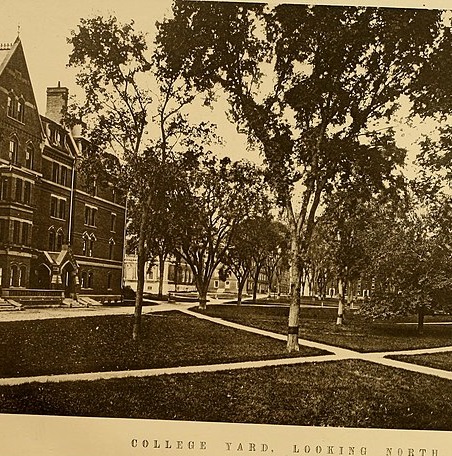
by Richard Subber | Aug 31, 2022 | Book reviews, Books, Joys of reading, Theater and play reviews
the movies ignore the real story…
Movie review:
The Scarlet Letter
by Nathaniel Hawthorne (1804-1864)
Published 1850
I watched three films based on Nathaniel Hawthorne’s iconic story, The Scarlet Letter. My small sample (there are at least nine movies based on the story) confirms that Hollywood really can’t stand the story as Hawthorne wrote it.
Read my review of Hawthorne’s book, click here.
In 1934 Colleen Moore played Hester Prynne and Hardie Albright played Rev. Arthur Dimmesdale in the tale about Puritan condemnation of adultery and children born out of wedlock. Hester is sentenced to wear an embroidered scarlet letter “A” on her bosom, and Dimmesdale endlessly rationalizes his decision to conceal his role as the mysterious father of little Pearl. The movie reflects the production limitations and typical dramatic direction in the 1930s—there’s a lot of staring into the camera, and crowded action scenes.
Meg Foster played Hester and John Heard played Dimmesdale in the 1979 TV miniseries about The Scarlet Letter. There are recognizable scenes from the book. The script is nondescript. It’s a ponderous distillation of Hawthorne’s words.
The 1996 version with Demi Moore as Hester and Gary Oldman as Dimmesdale apparently is the latest in the unsatisfying series of film versions of The Scarlet Letter. It is an almost lurid mal-adaptation of the book. The hot scenes featuring Hester and Dimmesdale attracted to each other are a complete invention—Hawthorne eschews any explicit reference or description of physical intimacy between his principal characters. Demi and Gary get it on, but it ain’t Hawthorne.
In all three films, the role of little Pearl is deliberately underplayed. The child is a principal factor in the story—her feelings, her joie de vivre, her contemplations, her maturation are fully explored in the book, and ignored in the movies.
The mental and emotional quagmires that are explored and endured by Hester and Dimmesdale are generally ignored in the movies. None of the movies uses the ending that fulfills the book.
In short, in my mind, if you want to claim that you are familiar with the themes, plot, and denouement of The Scarlet Letter, you have to read the book.
All of the movies are scandalously thin and false charades of the powerful drama of Hawthorne’s story that was published very successfully in 1850.
If you think you remember reading it a long time ago, try it again.
* * * * * *
Movie review. Copyright © Richard Carl Subber 2022 All rights reserved.
Book review: Shantung Compound
They really didn’t care much
about each other…
by Langdon Gilkey
–
My first name was rain: A dreamery of poems with 53 free verse and haiku poems,
and the rest of my poetry books are for sale on Amazon (paperback and Kindle)
and free in Kindle Unlimited, search Amazon for “Richard Carl Subber”
* * * * * *

by Richard Subber | Aug 26, 2022 | Language, My poetry, Poetry
…makes the fairy filigrees…
The water way
The vaulted glen preserves the cold calm,
enwraps the stillness,
enfolds the shrouded bowers,
hushes the tiny creatures
that do not sleep,
and graces the febrile stream
that ice cannot subdue,
the frosted flowing stream
that falls from freckled rock
to ledge to pool,
and foams awhile,
and pauses, turns,
and makes the fairy filigrees
that hang in air,
and finds its familiar course
in channels that defy
the glaze of winter.
September 7, 2019
* * * * * *
My poetry. Copyright © Richard Carl Subber 2022 All rights reserved.
Book review: Shawshank Redemption
This is a world I do not want to know…
by Stephen King
–
Seeing far: Selected poems with 47 free verse and haiku poems,
and my five other poetry books are for sale on Amazon (paperback and Kindle)
and free in Kindle Unlimited, search Amazon for “Richard Carl Subber”
Your comments are welcome—tell me what you’re thinking.
* * * * * *

by Richard Subber | Aug 19, 2022 | American history, Book reviews, Books, History
Henry Adams was there…
Book review:
The United States in 1800
by Henry Adams
Ithaca, NY: Cornell University Press, 1955, 1966
132 pages
Henry Adams wrote a colossal History of the United States of America during the First Administration of Thomas Jefferson (1889).
This slim volume is the first six chapters of that history, and it’s doggone interesting reading even for the casual student of history. Adams offers a somewhat disconnected, but nevertheless insightful, potpourri of facts and personal observations about the people of the very young United States.
For example, he reports that in 1800 the organization and operation of Harvard College was not exactly what you would guess: the college had a president, a professor of theology, a professor of mathematics, a professor of Hebrew, and four tutors, and “the method of instruction [was] suited to children fourteen years of age; the instruction itself was poor, and the discipline was indifferent.” So much for a college education in 1800.
The United States in 1800 offers an apparently realistic and sometimes deprecating panorama of the people and culture of the United States in the early 19th century.
There is no particular reason to think that Adams didn’t really know what he was talking about.
* * * * * *
Book review. Copyright © Richard Carl Subber 2022 All rights reserved.
Book review: All The President’s Men
About those men and women
who crave too much power…
by Carl Bernstein and Bob Woodward
–
As with another eye: Poems of exactitude with 55 free verse and haiku poems,
and the rest of my poetry books are for sale on Amazon (paperback and Kindle)
and free in Kindle Unlimited, search Amazon for “Richard Carl Subber”
* * * * * *

by Richard Subber | Aug 6, 2022 | Book reviews, Books, Human Nature, Language
language is social cement…
Book review:
Grooming, Gossip, and the Evolution of Language
by Robin Dunbar (b1947)
British anthropologist and evolutionary psychologist
London: Faber and Faber Limited, 1996
Grooming, Gossip, and the Evolution of Language is a fascinating, comprehensive account of how human beings got language and what it’s good for.
Hint: our ape-like ancestors figured out that grooming wasn’t enough to maintain their social relationships in their reproductive groups, and language made it possible to increase group size (for safety) by substituting for the physical contact of grooming.
Dunbar offers detailed and persuasive guidance on how we manage our social and political (organizational) relationships, and shows that groups that are larger than 150 individuals are extremely difficult, if not impossible, to thrive in and manage. If your work group comprises more than 150 persons, roughly speaking, your boss can’t manage the group and team work isn’t feasible.
* * * * * *
Book review. Copyright © Richard Carl Subber 2022 All rights reserved.
American Character: A History of the Epic Struggle…
Colin Woodard makes it easier to understand…(book review)
–
In other words: Poems for your eyes and ears with 64 free verse and haiku poems,
and the rest of my poetry books are for sale on Amazon (paperback and Kindle)
and free in Kindle Unlimited, search Amazon for “Richard Carl Subber”
* * * * * *

by Richard Subber | Aug 1, 2022 | Democracy, Politics, Power and inequality, Tidbits
Bite off as much as you can chew…
“Pick battles big enough to matter,
small enough to win.”
The wisdom of Jonathan Kozol (b1936)
Public education activist, keen thinker
This quote from Jonathan Kozol is a strategic, actionable version of similar quotations from historic writers:
Voltaire: “The best is the enemy of the good.”
Confucius: “Better a diamond with a flaw than a pebble without.”
Shakespeare: “Striving to better, oft we mar what’s well.”
This is compelling wisdom indeed for those of us who strive to make things better in the political arena that threatens us today.
I’m convinced that it’s worse than foolish to support or vote for a fringe or “outsider” candidate who has sparkling, pure principles and no chance in hell of winning. If you have to, hold your nose in the primary election and vote for the Democrat or Republican of your choice who can actually win the election.
Voting for a more or less surefire loser as a matter of principle—except in the general election—is just like throwing your vote away, and letting everyone else choose the winner.
* * * * * *
Copyright © Richard Carl Subber 2022 All rights reserved.
Book review: Ethan Frome
it’s not being satisfied with less…
by Edith Wharton
–
Writing Rainbows: Poems for Grown-Ups with 59 free verse and haiku poems,
and the rest of my poetry books are for sale on Amazon (paperback and Kindle)
and free in Kindle Unlimited, search Amazon for “Richard Carl Subber”
* * * * * *




